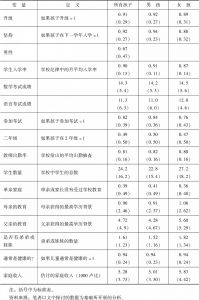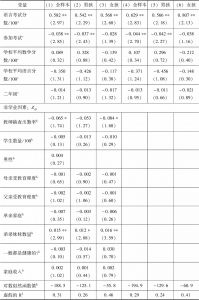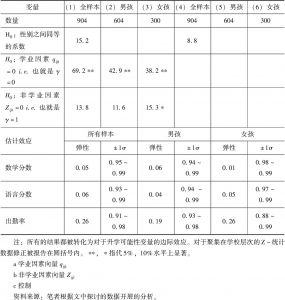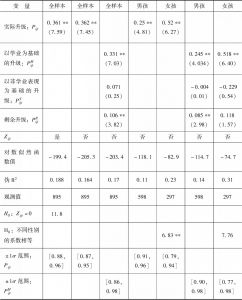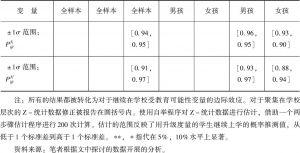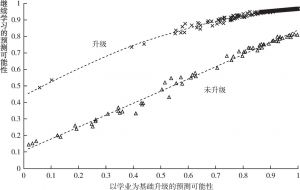- Ahmad,J. K.,S. Devarajan,S. Khemani and S. Shah. 2005. “Decentralization and Service Delivery.” Policy Research Working Paper 3603,TheWorld Bank,Washington,DC.
- Akresh,R.,E. Bagby,D. De Walque and H. Kazianga. 2012. “Child Ability and Household Human Capital Investment Decisions in Burkina Faso.” Economic Development and Cultural Change 61(1):157-86.
- Alderman,H.,P. Orazem and E. Paterno. 2001. “School Quality,School Cost,and the Public/Private School Choices of Low-Income Households in Pakistan.” Journal of Human Resources 36(2):304-26.
- Ali,M. and T. Reed. 1994. “A School and Parental Survey of Book Provision Issues in NWFP.” Unpublished paper,International Book Development,Ltd.
- Allensworth,E. M. 2004. Ending Social Promotion in Chicago:The Effects of Ending Social Promotion in the Eighth Grade on Dropout Rates. Chicago:Consortium on Chicago School Research.
- Anderson,K.,E. M. King and Y. Wang. 2003. “Market Returns,Transfers,and the Demand for Schooling in Malaysia.” Journal of Development Studies 39(3):1-28.
- Andrabi,T.,J. Das,A. I. Khwaja,T. Vishwanath and T. Zajonc. 2008. Learning and Educational Achievements in Punjab Schools(LEAPS):Insights to Inform the Education Policy Debate. Washington,DC:The World Bank. Also http://www.leapsproject.org/site/publications/.
- Bardhan,P. 2002. “Decentralization of Governance and Development.” The Journal of Economic Perspectives 16(Fall):185-206.
- Bardhan,P. 2005. Scarcity,Conflicts and Cooperation:Essays in the Political and Institutional Economics of Development. Cambridge,MA:The MIT Press.
- Becker,G. S. 1967. “Human Capital and the Personal Distribution of Income:An Analytical Approach.” Ann Arbor:University of Michigan,Woytinsky Lecture. Republished in Human Capital(New York:NBER,Second Edition,1975).
- Bedi,A.,and J. Marshall. 1999. “School Attendance and Student Achievement:Evidence from Rural Honduras.” Economic Development and Cultural Change 47:657-82.
- Behrman,J. R.,and A. B. Deolalikar. 1991. “School Repetition,Dropouts,and the Rates of Return to Schooling:The Case of Indonesia.” Oxford Bulletin of Economics and Statistics 53(4):467-80.
- Behrman,J. R.,D. Ross,and R. Sabot. 2008. “Improving the Quality versus Increasing the Quantity of Schooling:Estimates of Rates of Return from Rural Pakistan.” Journal of Development Economics 85(1-2):94-104.
- Bonvin,P. 2003. “The Role of Teacher Attitudes and Judgment in Decision-making:the case of grade retention.” European Educational Research Journal 2(2):277-94.
- Chaudhury,N.,H. Jeffrey,M. Kremer,K. Muraldhiran and F. H. Rogers. 2006. “Missing in Action:Teacher and Health Worker Absence in Developing Countries.” Journal of Economic Perspectives 20(1):91-116.
- Das,J.,S. Dercon,J. Habyarimana and P. Krishnan. 2007. “Teacher Shocks and Student Learning:Evidence from Zambia.” Journal of Human Resources 42(4):820-62.
- Eide,E. R. and M. H. Showalter. 2001. “The Effect of Grade Retention on Educational and Labor Market Outcomes.” Economics of Education Review 20(6):563-76.
- Gertler,P. and P. Glewwe. 1990. “The Willingness to Pay for Education in Developing Countries:Evidence from Rural Peru.” Journal of Public Economics 42(3):251-75.
- Glewwe,P. 2002. “Schools and Skills in Developing Countries:Education Policies and Socioeconomic Outcomes.” Journal of Economic Literature 40(2):436-83.
- Glick,P. and D. Sahn. 2010. “Early Academic Performance,Grade Repetition,and School Attainment in Senegal:A Panel Data Analysis.” World Bank Economic Review 24(1):93-120.
- Gomes-Neto,J. B. and E. A. Hanushek. 1994. “Causes and Consequences of Grade Repetition:Evidence from Brazil.” Economic Development and Cultural Change 43(1):117-48.
- Grissom,J. B. and L. A. Shepard. 1989. “Repeating and Dropping Out of School.” In L. A. Shepard,and M. L. Smith,eds.,Flunking Grades:Research and Policies on Retention. London:Falmer Press.
- Hanushek,E. A. and L.Woessmann. 2012. “Do better schools lead to more growth?Cognitive skills,economic outcomes,and causation.” Journal of Economic Growth 17(4):267-321.
- Hanushek,E. A. and D. D. Kimko. 2000. “Schooling,Labor Force Quality,and the Growth of Nations.” American Economic Review 90(5):1184-208.
- Hanushek,E. A.,V. Lavy and K. Hitomi. 2008. “Do Students Care about School Quality?Determinants of Dropout Behavior in Developing Countries.” Journal of Human Capital 2(1):69-105.
- Hauser,R. M.,D. I. Pager and S. J. Simmons. 2004. “Race-Ethnicity,Social Background,and Grade Retention.” In H. J. A.J.Walberg Reynolds,and M. C.Wang,eds.,Can Unlike Students Learn together?Grade Retention,Tracking,and Grouping. Greenwich,CT:Information Age Publishing.
- Holmes,C. T.. 1989. “Grade level retention effects:A meta-analysis of research studies.” In L. A. Shepard,and M. L. Smith,eds.,Flunking Grades:Research and Policies on Retention. London:Falmer Press.
- Jacob,B. A. and L. Lefgren. 2004. “Remedial Education and Student Achievement:A Regression Discontinuity Analysis.” The Review of Economics and Statistics 86(1):226-44.
- Jimerson,S. R. 2001. “Meta-analysis of Grade Retention Research:Implications for Practice in the 21st Century.” School Psychology Review 30(3):420-37.
- Mete,C. 2004. “The Inequality Implications of Highly Selective Promotion Practices.” Economics of Education Review 24(3):301-14.
- Patrinos,H. and G. Psacharopoulos. 1996. “Socioeconomic and Ethnic Determinants of Age-Grade Distortion in Bolivian and Guatemalan Primary Schools.” International Journal of Educational Development 16(1):3-14.
- Pritchett,L. 2013. The Rebirth of Education:Schooling Ain’t Learning. Washington,DC:Center for Global Development.
- Roderick,M. and J. Nagaoka. 2005. “Retention under Chicago’s High-Stakes Testing Program:Helpful,Harmful,or Harmless?” Educational Evaluation and Policy Analysis 27(4):309-40.
- L. A. Shepard and M. L. Smith(eds). 1989. Flunking Grades:Research and Policies on Retention. London:Falmer Press.


